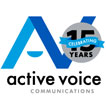
You’re not working overtime to produce on-point creative just to win a trophy. Between sales numbers, marketing metrics, upticks in awareness and simply what the CEO thinks, there are plenty of ways to measure the effectiveness of your work.
But recognition in the form of earning an industry award is a nice-to-have for a few reasons: First, sometimes it’s necessary to show your bosses you know what you’re doing, and third-party validation can help with that. Second, it can be a good resume builder (though awards should never take the place of outlining the results your campaigns have garnered). Plus, awards events can be good places to network. And if you’re a relative unknown, having an award under your belt can lend legitimacy to your work and help you attract clients/employers.
So what’s the key to winning? Great work, of course. But a close second is nailing your submission. Here’s how to write an effective award entry.
1. Select an awards program to enter.
Some programs — including the AVA Digital Awards, Hermes Creative Awards, Communicator Awards and Muse Awards — base their honors entirely on the work itself. We like these programs because they usually don’t take a lot of time to enter, and you don’t need to demonstrate that your work produced results (which we’re not always privy to as an agency). Plus, sometimes you produce excellent work and then something goes wrong with distribution, a merger is announced or the news cycle goes haywire — or whatever — and the piece just doesn’t perform as well as you’d hoped. These programs are perfect for such situations.
Then there are awards programs such as the Silver and Gold Quills that judge the strategy behind the work and the results achieved in addition to the creative. These programs typically have very specific requirements — questions that require poignant answers, have word or character limits, and may even have formatting requirements. (Yes, entries can actually be disqualified for having the wrong size font or improper margins.) The bottom line is: Be sure to read the judging criteria and rules/requirements for whichever program you decide to enter.
2. Build a schedule.
There’s more to submitting work for an award than filling out an entry form. So list out all the steps you’ll need to do and build yourself a mini production schedule. For example: In what format is your submission? Will you need someone to create a PDF of the work or pull it from an archive? How much time will you need to answer the entry questions? Will you need input from anyone else who was involved in the process? Who will need to sign off on your entry?
If the award is important to you (especially if it’s important enough that you’re paying a fee to enter), you don’t want to have to cram.
3. Ask for data early.
The strongest award entries include data that illustrates how the work performed. Did you triple leads through a content program? Create a campaign with a high click rate? Achieve a 2:1 ROI with an ad campaign? Whatever numbers you tracked, include them.
If you’re the one writing the awards entry, chances are you might not have direct access to the data. Or you might need someone who can contextualize it for you. Be sure to request data and any interpretation assistance early so you can allow time not only for the data to be pulled, but also to figure out what it means.
4. Request input from relevant parties.
If you weren’t directly involved in the project, you’ll need to gather some behind-the-scenes details, such as: What was the impetus for the project? What were our goals? How did we arrive at this particular logo design? Why did we select those colors? How many iterations did we go through to get to this awesome tagline? What was our budget?
5. Write.
Now, it’s time to pull it all together into your entry. Approach the open-ended questions as you would any piece of content — by telling a story rather than just listing results. Describe your strategy behind the piece, the process you used to create the work, any challenges you had along the way and the results you achieved. Make it a compelling read for the people judging your work. It doesn’t need to be lengthy (remember those word/character counts!), just long enough to provide context.
Zero in on one to three specific objectives and how you fared. Don’t be afraid to mention a goal you didn’t hit. After all, you’re human. Include why you think the results turned out the way they did and why you feel as though the project was an objective success.
6. Send the draft for review.
Make sure any necessary reviewers have an opportunity to look over the entry. Ask folks to confirm the narrative you’ve prepared is accurate and representative of the submission. They may also have ideas regarding where you can add some oomph to the entry.
Plus, it’s always a good idea to get internal approval so you can feel confident you’re not sharing any sensitive data or proprietary information. (Awards programs keep entries confidential, but it’s never a bad idea to have a higher-up’s stamp of approval in your inbox.)
7. Submit on time.
Most programs will offer an extended deadline, but it’s best to not count on that. Plus, extended deadlines usually come with an additional cost. So follow the schedule you created in Step 2 and submit your entry on time. In addition to keeping costs down, you’ll also save yourself some stress. After all, no one wants to be at the mercy of your internet connection or someone else’s website when you’re cramming for a midnight deadline, right?
8. Celebrate your win!
When you win, share the news! Tell your boss pronto. Allow your team to revel in the success of the project. And don’t forget to promote your win across your organization via a newsletter article, intranet post, company announcement, etc.
If permitted, share the news externally, too. Post about it on social media (especially LinkedIn), tagging the awards program so they can help promote your win as well. Casually add winners’ graphics to your presentation decks. Include the honor in your external newsletter.
Remember, if awards are part of a strategy for your marketing team (or your own career), they only work if people know about them.
Awards entry checklist
Winning an industry award is as much about the submission as it is the actual work you’re submitting. Follow these steps to a winning award entry:
- Select an awards program to enter.
- Familiarize yourself with the entry rules and requirements.
- Create a production schedule.
- Request data on how the project performed.
- Gather other behind-the-scenes info.
- Write your submission narrative.
- Get the appropriate internal approvals.
- Submit your entry on time.
- Celebrate your win!
- Share the news internally and externally (if permitted).
